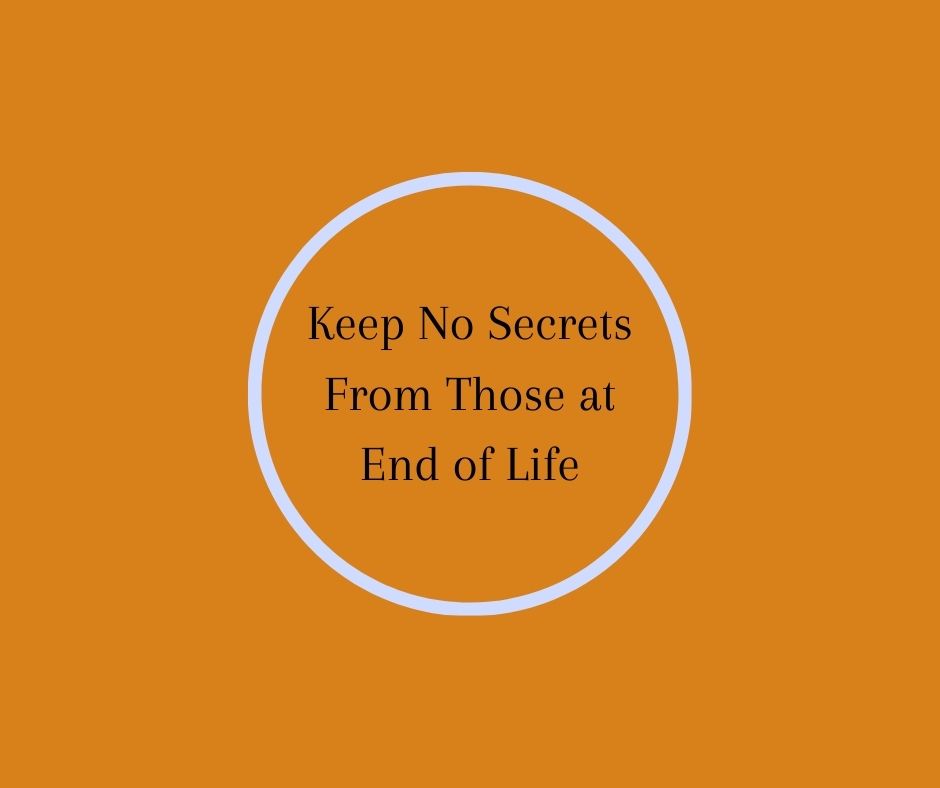I was thinking about hospice volunteer training. What makes a good training program? I am hearing stories about the lack of professional staff training for new hires, which led me to wonder about volunteer training.
So—here are my thoughts for a hospice volunteer training program:
- At the first meeting of the training, have a discussion focusing on why the person wants to be a volunteer in the end of life arena. It is not an area most people are interested in, so why are they?
- When was their last experience with death? Often there can still be unresolved grief issues. I suggest that at least one year has passed since the death of a significant person in the potential volunteer’s life. Working with end of life patients may trigger their own memories and interfere with objectivity in giving help. (Note that steps 1 and 2 should come before the following steps. We need to see why they are drawn to this area before anything else. These steps may be the time that the prospective volunteer decides hospice volunteering is not the work for them. It is also the point at which the hospice coordinator decides it is not a good fit for the applicant.)
- Now explain the role of a volunteer. Go over what is expected and what is not acceptable.
- Begin teaching the signs of approaching death. Go over what the signs will look like in the months, weeks, and hours before death. Particularly address how eating, sleep, socialization will change. Provide lecture-style teaching, take-home reading materials, and written assignments.
- Teach the basics of nutrition, skin care, pain management, and monitoring activity levels. Not because the volunteer will be doing care, but because they are the eyes of the professional staff and can report their observations.
- Teach effective and sensitive communication and active listening skills.
- Go over the specifics of dementia at end of life and how to interact with someone with the disease.
- The basics of grief are another important component of end of life training. Again, lecture and provide reading materials and written assignments.
- Offer guidance on self-care. Offer guidance on the importance of entering the patient/caregivers life as a support person, and how we don’t become personally involved. Lecture on creating a closure ritual, having a buddy system, and when and how to contact a bereavement coordinator for personal support should the need arise.
- Convey the importance of attending monthly volunteer discussion groups. These groups are a coming together of active volunteers for conversation, support, and continuing education inservice.
- I suggest The Final Act of Living, By Your Side and the End of Life Guideline Series Bundle be required reading. These will provide a strong baseline in end of life knowledge. I also recommend these for medical professionals working in the end of life area.
These are my ideas for a volunteer training program. I would love to hear thoughts, ideas and offerings from other volunteer programs. Let’s combine ideas so we can have well trained volunteers providing excellent end of life care to our patients and families.
Suggested Resources in this blog:








1 comment
Laura Brindza, CVA
Barbara,
Thanks for ALWAYS being a great resource for the Hospice Volunteer Coordinators! I do a monthly newsletter that incorporates ongoing topics and learning options (webinars/online classes/in person training in the community) and also have a BOOK OF THE MONTH section where I have featured your books for our volunteers, staff and community partners. As my program begins to grow I am going to use your idea of Monthly Volunteer Discussion Groups…even if they are virtual, to engage and continually educate my volunteers to support our patients.
THANK YOU again for being an advocate, educator and compassionate person! We appreciate the road you are paving for hospice professionals.
Thankfully,
Laura Brindza, CVA
Sanctuary Hospice NE Ohio
———
BK Books replied:
Hi Laura, sounds like you’re doing great work. Your volunteers and your hospice are lucky to have you. You might think about having my new booklet, Always Offer, Never Force for one of your Book of the Month discussions. Blessings to you in the work you are doing. Barbara
Barbara,
Thanks for ALWAYS being a great resource for the Hospice Volunteer Coordinators! I do a monthly newsletter that incorporates ongoing topics and learning options (webinars/online classes/in person training in the community) and also have a BOOK OF THE MONTH section where I have featured your books for our volunteers, staff and community partners. As my program begins to grow I am going to use your idea of Monthly Volunteer Discussion Groups…even if they are virtual, to engage and continually educate my volunteers to support our patients.
THANK YOU again for being an advocate, educator and compassionate person! We appreciate the road you are paving for hospice professionals.
Thankfully,
Laura Brindza, CVA
Sanctuary Hospice NE Ohio
———
BK Books replied:
Hi Laura, sounds like you’re doing great work. Your volunteers and your hospice are lucky to have you. You might think about having my new booklet, Always Offer, Never Force for one of your Book of the Month discussions. Blessings to you in the work you are doing. Barbara